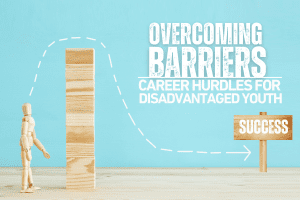University mental health tips
Blog written by Olivia Malone, Student at the University of Salford.
Did you know that today is University Mental Health Day? The national day on the calendar for student mental health.
This year, University Mental Health Day is more important than it has ever been before with the ongoing COVID-19 pandemic. Coronavirus is affecting the mental health of many students in so many different ways. Being a student in a pandemic is new, it is different, and it comes with challenges every single day. Nearly 73% of students said that their mental health had declined during the lockdown for several different reasons.
When the pandemic first hit, I was in the final year of my undergraduate degree at the University of Huddersfield. I remember everything ending so abruptly. It began with cancelled lectures, and lectures being moved online immediately. Before we knew it, we were being told that our graduation would no longer be going ahead, and as a student after putting in three years of constant hard work I was devastated, I cried.
Although graduation has never been technically cancelled, I think for many students, if we were to get that celebration, the moment has now passed. With the first lockdown pending and living in student accommodation with my friends from different parts of the country, all of us made the decision that it would be best to return to our hometowns. March 2020 was the last time I got to see my friends who I had previously spent almost every single day for the last three years of my life.
I had just spent the last four years living in a different town, living independently and having freedom and suddenly, I was moving back into my family home. Initially, I felt like I was going to lose my independence. Moving back home after several years is a challenge in itself as you have to learn to re-adjust.
Upon returning home, my degree was still ongoing. Everything had now become remote and due to the nature of my course, the way that some of the projects were done now had to be changed to adapt. This made things incredibly difficult, adding extra work to assignments meaning longer days and later nights to be able to meet the deadlines. Not only did I have the stress of assignments and the dreaded final year dissertation, but I was also expected to pay for the final three months rent in my student accommodation, and bills for utilities I wasn’t using.
I began working as a temp in my local supermarket as I had no choice but to pay for my rent, I was working more and more shifts as there quickly became a shortage of staff due to coronavirus. I was trying to juggle the final few months of my degree and my job, I felt like I did not stop. There were nights where I would come home from work at 10pm and be sat at my laptop working away until the early hours of the morning before repeating this the following day, I knew this wasn’t good for myself or for my mental health either.
After I graduated (without the ceremony) I had my master’s degree to look forward to at The University of Salford. I had hoped to be on campus, and this did happen, once a week. Attending lectures on campus was soon cut short though and by December everything had moved online.
Unless you are completing online university, I don’t think anyone really understands what it is like. For me, because university is happening at home, I feel like the people around me believe that I am sat at home doing nothing, or that it is ‘easy’ because it is online, or even worse, suddenly I have all this free time. It’s difficult to get people to understand that you are still studying. You might be present in a lecture, but it becomes incredibly difficult to stay engaged when you are sat staring at a screen for four hours straight.
Your mind can zone out so easily, and you find yourself having to watch the lecture over and over again because it becomes impossible to absorb the information. I personally began associating my bedroom with university, when I was doing my undergraduate degree the library was my place, I did everything there. I always struggled to stay focused if I was working at home. Now that I was associating my bedroom with university, when it came to going to sleep at night, I just could not switch off. More often than not, I would spend hours lay in bed staring at the ceiling being unable to fall asleep.
Now that we are adjusting to a new normal, I have accepted that this is just how being a student is during a pandemic and I have finally adjusted and adapted to the new environment after many long months. Here are my top ten tips for students who might be struggling trying to complete their studies in a COVID-19 world:
1) Make sure you take regular breaks from your work and your studies, even if it is just to make a cup of tea or complete another simple task, it breaks up your day.
2) Get out of the house at least once a day, go for a run or a long walk. The fresh air does you good and you have a reason to go outside.
3) Make time for self-care whether that be doing a facemask, taking a bubble bath, or just doing nice something that you enjoy doing.
4) Plan your days out and set yourself tasks to complete each day so that you are able to feel more productive. To-do lists have been my saviour during lockdown!
5) Take time out to watch something, a Netflix documentary or a film is usually a great shout.
6) Read! Before lockdown, I never used to read for leisure but with the extra time, I have fallen back in love with reading especially when it takes your mind to a different universe.
7) Talk to your friends! Set up zoom meetings, arrange quizzes or online get-togethers – It is so important to have interaction with other humans.
8) Eat well – it sounds so obvious but throughout the lockdown’s I have been cooking new healthy recipes, it gives you something to do and at the same time you are being healthy and trying new foods and not to mention improving your cooking skills too.
9) Rest! Resting is productive too. You must make sure that you are getting enough sleep each night so that you can feel ready to crack on with your day when you wake up the following morning
10) Ask for help if you need it. There is no shame in reaching out for help and support if that is something you feel like you require, whether that be reaching out to your friends and family, your university, or elsewhere. There are plenty of people out there who want to help you if you are struggling!
Remember, if you are struggling with your mental health there are lots of things you can do to seek support and help.




